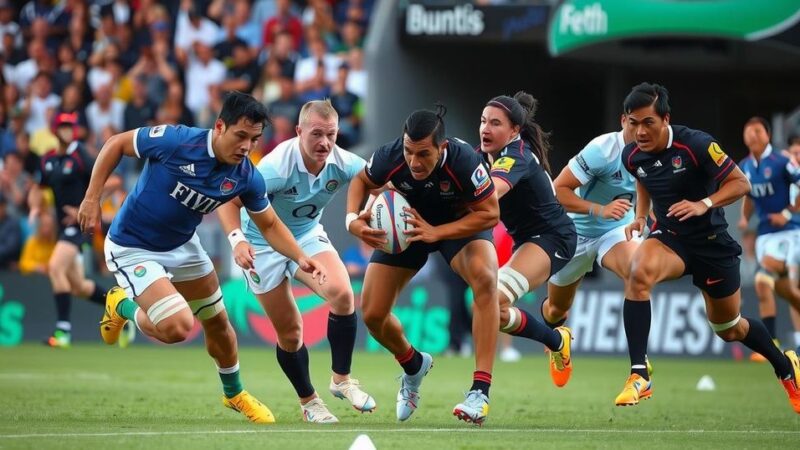The Nigerian football team announced a boycott of their AFCON qualifier against Libya, having been stranded at Al Abraq Airport overnight. Team captain William Troost-Ekong described the actions of the Libyan authorities as mind games aimed at destabilizing their morale. Star striker Victor Osimhen criticized these tactics and expressed concerns over their treatment, prompting Nigeria’s sports minister to call for a complaint to be lodged with African soccer officials.
The Nigerian national football team, known as the Super Eagles, announced their decision to boycott the upcoming Africa Cup of Nations (AFCON) qualifying match against Libya. This action comes after the players were stranded overnight at Al Abraq Airport, approximately 220 kilometers from their intended destination, Benghazi Airport. Team captain William Troost-Ekong described the situation as a deliberate tactic to unsettle the Nigerian squad, stating that their approved landing in Benghazi was suddenly revoked by the Libyan authorities without explanation. The main concern for the players was their lack of access to food, water, and communication, a situation which Troost-Ekong characterized as mind games. Images shared on social media depicted players resting on airport seats, underscoring their uncomfortable predicament. Star striker Victor Osimhen, sidelined due to injury, criticized the actions of the Libyan soccer federation via an Instagram post, suggesting these actions were aimed at demoralizing the Nigerian contingent. Furthermore, tensions between the two teams have escalated since Nigeria’s previous victory against Libya, with accusations of mistreatment and sabotage being exchanged by both sides. The Nigerian Sports Minister, John Owan Enoh, has called for a formal complaint to be lodged with the continent’s soccer governing body to address these grievances. In light of these developments, the match, scheduled just after Nigeria’s 1-0 triumph in the first leg, remains in jeopardy as the players stand firm in their decision to not participate under the current circumstances.
The ongoing conflict between Libya and Nigeria’s national football teams highlights a troubling narrative of perceived hostilities in African football. The Nigerian Super Eagles have faced allegations of sabotage from their Libyan counterparts, contributing to a climate of tension surrounding their matches. The incident at Al Abraq Airport is not isolated; it reflects a broader issue of logistics and treatment of teams traveling for international competitions within the continent. As teams traverse through various countries, their experiences can often vary dramatically based on political climate, regional stability, and the prevailing attitudes of local authorities and soccer federations. Accusations of mistreatment and gamesmanship have been prevalent, further complicating relationships in international sports within Africa.
In summary, the Nigerian national football team’s refusal to participate in the forthcoming AFCON qualifying match against Libya due to their recent experiences at Al Abraq Airport underscores the growing tensions in African football. With accusations of sabotage and mind games exchanged between the two sides, the situation exemplifies the pressing need for greater solidarity and fair treatment in international sports. The Nigerian Sports Minister’s call for an official complaint indicates a desire for accountability and recognition of the challenges faced by teams competing on the continent.
Original Source: www.business-standard.com






